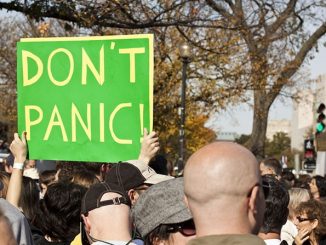
Opening Insights: Reality Check?
I don't care what you think unless it is about me.
KURT COBAIN
Are you one of the many people who has experienced and thought of the millennial generation as being overwhelmingly selfish, self-absorbed, self-centered and narcissistic? Well... new RESEARCH says you may be WRONG and the ego and arrogance of our current workforce is in fact no different than what it was 30 years ago.
Informational Insights: Narcissism Epidemic
Joe Pierre writes for Psychology Today:
Is there a narcissism epidemic or isn’t there? That is the question.
For Dr. Brent Roberts and his colleagues, the answer is no. Research published this week by Dr. Roberts’s research group in the journal Psychological Science (with lead author Dr. Eunike Wetzel) suggests that the narcissism epidemic—the idea that young adults have become increasingly self-absorbed over the past several decades—doesn’t exist. Based on new findings, it looks like college-aged Millennials are no more narcissistic than they were 20 years ago.
For some background on this, take a look at my previous series, “Looking in the Mirror at Our Love of Narcissists.” In Part 1 (“Just What is a Narcissist Anyway?”), I deconstruct narcissism, noting that the psychological trait—as measured by the Narcissistic Personality Inventory (NPI)—is distributed along a continuum without any clear definition of what a “narcissist” is.
In Part 3 (“The Narcissism Epidemic and What We Can Do About It”), I review the conflicting evidence on the so-called narcissism epidemic. Briefly summarized, there has been a debate among psychology researchers over whether there is evidence for the existence of a narcissism epidemic as measured by NPI scores from college student. On the one hand, Dr. Jean Twenge (San Diego State psychologist, Psychology Today blogger, and author of Generation Me and The Narcissism Epidemic: Living in the Age of Entitlement) has claimed that today’s college-age young adults are decidedly more narcissistic than their counterparts dating back to the 1980s. In contrast, separate research teams led by Dr. Kali Trzesniewski of University of Western Ontario and Dr. Brent Roberts from University of Illinois at Urbana-Champaign (UIUC) have published data showing that NPI scores from college students haven’t increased and may have even decreased in recent years.
My previous blog post unpacks some possible reasons for these discrepant findings including different datasets and gender differences. This week, Dr. Roberts’ group has published new research that sheds additional light on these differences and puts another proverbial nail in the narcissism epidemic’s coffin. Their study examined NPI scores from college students at UC Berkeley, UC Davis, and the UIUC over the 23-year period between 1992 and 2015—during this period, NPI scores did not change significantly with, if anything, an overall trend for decreasing narcissism.
Because ethnicity and gender have been cited as possible factors in explaining why some have found an increase in narcissism, the researchers investigated whether these factors influenced NPI scores over time. There were no significant gender differences, with NPI scores decreasing for both men and women. For ethnicity, the NPI measure for “vanity” increased somewhat for Asians, but there was no significant change in overall narcissism for this group. The authors conclude that “today’s college students are less narcissistic than their predecessors” and “there may have never been an epidemic of narcissism.”
As Dr. Roberts puts it, “the kids are all right.”
Clearly, Dr. Roberts and his colleagues are telling a different story about today’s youth than Dr. Twenge, who has blamed the rise of the “Me Generation” (“iGen” for short) on a media-obsessed modern culture and childhood over-indulgence that is part of the “Self Esteem Movement.”
Dr. Roberts and his colleagues believe that kind of fault-finding is undeserved:
“The widespread acknowledgement of an epidemic [of narcissism] has important consequences for educational and occupational practices, insofar that it may promote the tendency to hold a negative portrayal of the current generation of college students. This perspective has gained traction in large part because of the common perception that today’s popular culture encourages individuals to engage in self-inflation and the generalized bias to perceive younger individuals as more narcissistic than older individuals.”
We can expect that Dr. Twenge will defend her findings, noting for example that her dataset extended back a decade earlier than Dr. Roberts', to the 1980s when average NPI scores seem to have been at their lowest in the past 30 years. This leaves open the possibility that narcissism among college undergraduates may be on the decline now, but might still be higher than it was in their parents' day.
Source: https://www.psychologytoday.com/blog/psych-unseen/201710/new-research-finds-no-evidence-narcissism-epidemic
Possibilities for Consideration: Millennials are O.K.
In order to deal with loss, process anger and overcome narcissism requires that we go through a process of causation, understanding, experiential and transformational learning. Understanding the theory of loss, selfishness and depression is not enough, we need a safe environment and process in which we can discover through a collaborative process who we are and who we are not.
The article brings to light several issues worth considering:
- Maybe millennials are not that bad.
- Maybe millennials have no responsibility or accountability to change or address their behaviors.
- Maybe the current economic crisis and talent shortage has nothing to do with the "me" centered generation.
- Maybe we have nothing to worry about, the millennial generation will be fine, businesses are just being ridiculous.
- Maybe the drive to automate and create robots to replace people has nothing to do with the need for proficient workers.
Add Your Insight: Overcoming Narcissism
The sadistic narcissist perceives himself as Godlike, ruthless and devoid of scruples, capricious and unfathomable, emotion-less and non-sexual, omniscient, omnipotent and omni-present, a plague, a devastation, an inescapable verdict.
SAM VAKNIN



